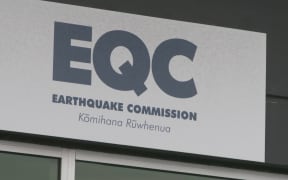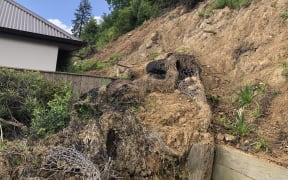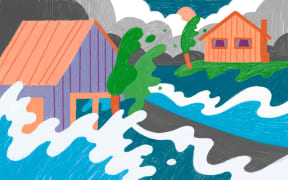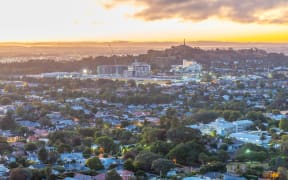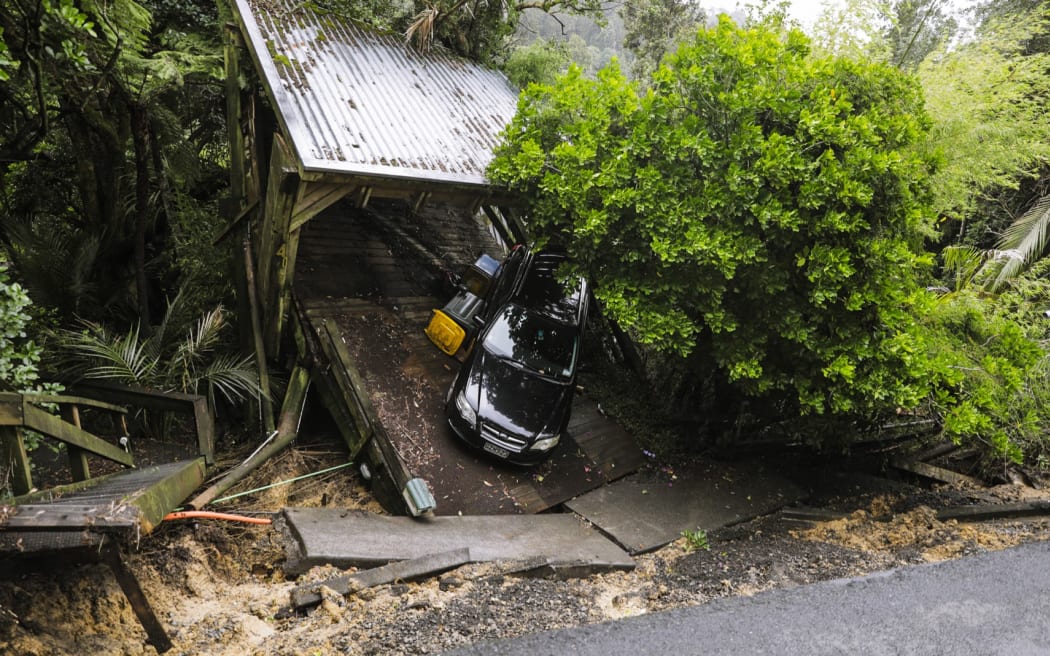
A landslip in Titirangi during the Aucland floods in January 2023. Photo: RNZ / Samuel Rillstone
The Earthquake Commission (EQC) has been given a new name - the Natural Hazards Commission Toka Tū Ake.
The new name is one of a raft of changes to update the scheme's governing legislation and came into force on Monday.
The new legislation reflects the commission's role to help prepare and recover from a range of natural hazards - earthquakes, tsunamis, landslips and floods.
"We cover more than just earthquakes" commission chief executive Tina Mitchell said.
The government overhauled the legislation following reviews of EQC and a public inquiry released in 2020 that found it was poorly prepared for the Canterbury earthquakes.
"It's been a decade of change since the Canterbury earthquakes and with that we've had about 50 reviews as an organisation because the process in Canterbury was really tough for people, Mitchell told Nine to Noon.
"The amount of financial cover was good but the process took a long time and was really stressful."
The government's natural hazards insurance scheme, in place for nearly 80 years, provides baseline cover for damage to insured properties from a range of natural hazards.
Cover under the scheme remains largely the same under the new Act with some changes to clarify cover and entitlements.
The legislation creates a clearer process for claim excesses and calculations for retaining walls, bridges and culverts, Mitchell said.
Homeowners would also have increased cover for mixed-use buildings, such as apartments in commercial building.
Homeowners have access to the scheme if they have an insurance policy with fire cover. The premium paid to insurers includes a Natural Hazards Insurance Levy, which is the amount homeowners pay for this cover.
The levy, with a maximum of $480, is used to pay claims, invest and grow the fund, buy reinsurance, and invest in science and research, Mitchell said. The natural disaster fund stands at about $300 million, and there's some $9 billion of reinsurance money.
New Zealand was rated highly its reinsurance programmes, she said. "The reinsurance markets like the fact that New Zealand understands its risk, models it really well and is doing things to mitigate it."
